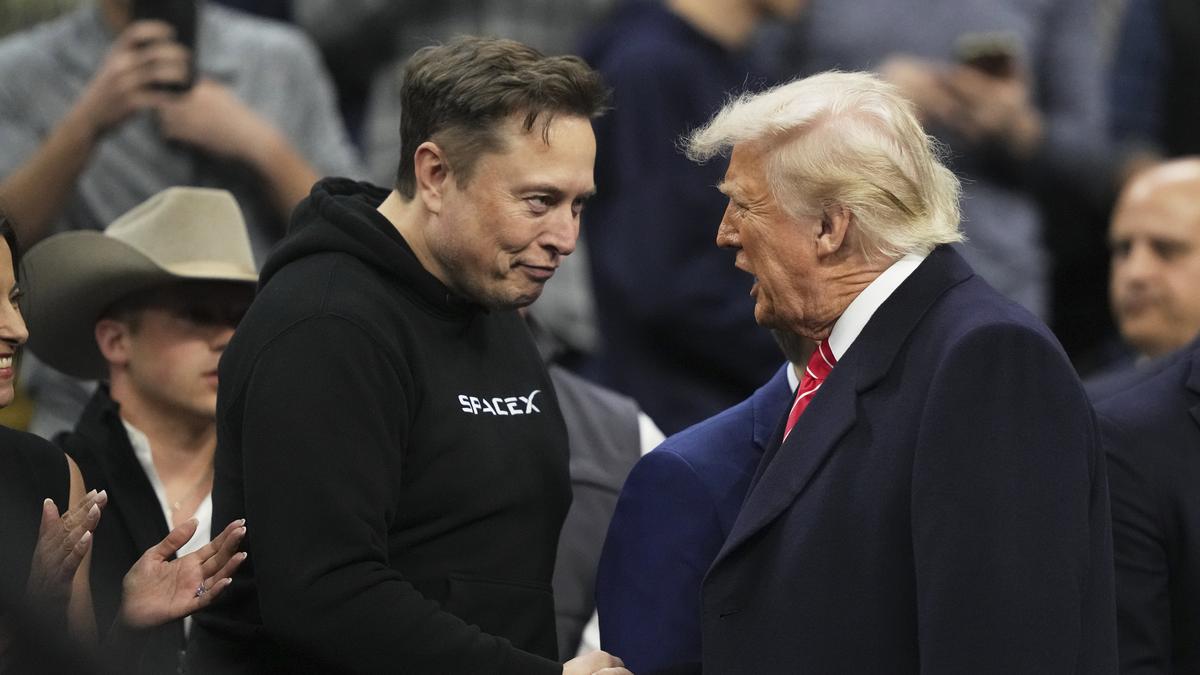In a move that caught both political insiders and tech watchers off guard, Elon Musk's resignation from his controversial role in the Department of Efficiency for Doge under the Trump administration has sparked heated debates across the U.S. political landscape. Appointed to this satirical-sounding yet policy-driven position just months into President Donald Trump's second term, Musk’s departure signals potential discord within the administration’s unconventional structure.
Though the "Department of Efficiency for Doge" may sound like a meme turned reality, the role had serious implications tied to government technology streamlining, crypto policy formulation, and public-private collaboration in innovation. Musk's involvement, widely seen as both experimental and provocative, was a hallmark of Trump's willingness to integrate unorthodox figures into his cabinet.
The Rise and Fall of the Doge Department
The creation of the Department of Efficiency for Doge, often shortened to the “Doge Department,” was part of Trump’s second-term promise to “cut the fat” out of federal operations and push for a more tech-forward bureaucracy. Elon Musk, the billionaire entrepreneur and CEO of Tesla and SpaceX, was brought on board to lead the effort in early 2025. His appointment raised eyebrows, as critics questioned whether his disruptive style would mesh with the slow-moving federal apparatus.
Despite the skepticism, Musk was tasked with leading efforts to integrate blockchain solutions into federal record-keeping, promote AI-driven decision-making, and, notably, explore the symbolic and practical use of Dogecoin in limited governmental transactions, especially as a statement against traditional centralized banking systems.
At first, Musk approached the role with his trademark flair. He tweeted enthusiastically about "decentralizing inefficiency" and even hinted at turning the department into a testbed for public-private digital experiments. However, internal reports in recent weeks suggested growing tension between Musk and other White House officials over the practicality and legality of his initiatives.
Reasons Behind Elon Musk’s Resignation
According to insiders cited by Bisnis.com, Musk’s resignation stems from multiple internal disputes, particularly regarding the scope of his authority and disagreements on crypto-related policies. One official noted, “Musk wanted more autonomy than the administration was comfortable giving. There was also a growing concern over the public perception of serious policy being influenced by internet culture.”
Another factor is believed to be Musk's frustration with bureaucratic red tape. Unlike the fast-paced decision-making in his companies, the federal government operates with layers of oversight, legal reviews, and institutional inertia. Sources close to Musk stated that he felt "handcuffed" and "unable to execute even basic innovation pilots without delays."
The final straw reportedly involved a failed proposal to implement Dogecoin-based micro-payments for selected federal services. Legal advisors strongly opposed the idea due to regulatory concerns and the volatile nature of the currency. The clash escalated, and within days, Musk tendered his resignation.
In a brief post on X (formerly Twitter), Musk said:
"I’ve appreciated the chance to serve, but government innovation must be more than slogans. Time to focus on building off-grid Mars colonies and fully sentient AI."
Implications for Trump’s Second-Term Agenda
Elon Musk’s resignation is a political blow for the Trump administration. His presence brought visibility and a certain tech-sector legitimacy to the president’s efficiency agenda. While the Doge Department was never fully embraced by traditionalists, it symbolized Trump’s outsider ethos, a cabinet that defied norms in both composition and strategy.
Now, that narrative faces a setback. Critics have pounced on Musk’s exit as evidence that the administration’s technology policies are unserious and performative. Democratic lawmakers have already issued statements calling for a full audit of the Doge Department’s activities and expenditures.
On the other hand, Trump supporters argue that Musk’s short tenure still brought value by spotlighting inefficiencies and offering outside-the-box ideas. In a post on Truth Social, Trump wrote:
"Elon is a GENIUS, but even geniuses sometimes need to take a break. We’ll keep WINNING with new tech leaders in place!"
Speculation is already swirling about who might replace Musk. Rumored candidates include Peter Thiel, another tech billionaire with conservative leanings, and Cathie Wood of ARK Invest, known for her crypto advocacy. Whether anyone can bring the same level of public attention as Musk remains to be seen.
Broader Impact on Tech-Government Relations
Elon Musk’s resignation also raises broader questions about how the federal government engages with the private tech sector. His departure reinforces the long-standing tension between Silicon Valley’s fast-paced, risk-taking culture and Washington’s cautious, rule-bound environment.
While partnerships between tech leaders and government entities are not new, think Google’s contracts with the Department of Defense or Amazon Web Services powering parts of federal cloud infrastructure, Musk’s stint was unusually high-profile and unfiltered.
Crypto advocates fear that Musk’s exit could dampen momentum for blockchain policy innovation in Washington. “Elon brought energy to conversations about decentralized finance in government,” said Maya Barnes, a crypto policy researcher. “Now, with him gone, that fire may dim.”
At the same time, regulatory officials have expressed relief. The SEC and Treasury Department were reportedly wary of Musk’s proposals, especially those involving Dogecoin. They feared his influence could blur the lines between satire and serious economic policy.
What's Next for Musk?
As for what Musk plans to do next, he remains focused on his private ventures. SpaceX is preparing its next Mars mission blueprint, Tesla is working on its long-awaited self-driving software release, and xAI—his artificial intelligence company—is rumored to be launching a groundbreaking language model.
There’s also talk that Musk might increase his involvement in global tech diplomacy, helping emerging markets develop ethical frameworks for AI and decentralized technology. While his political experiment may have ended prematurely, Musk’s role as a tech visionary remains unshaken.
In true Musk fashion, his resignation marks not an end but a pivot—back into the private sector, where innovation, for better or worse, happens at Musk speed.
Read More






 Wednesday, 04-02-26
Wednesday, 04-02-26







